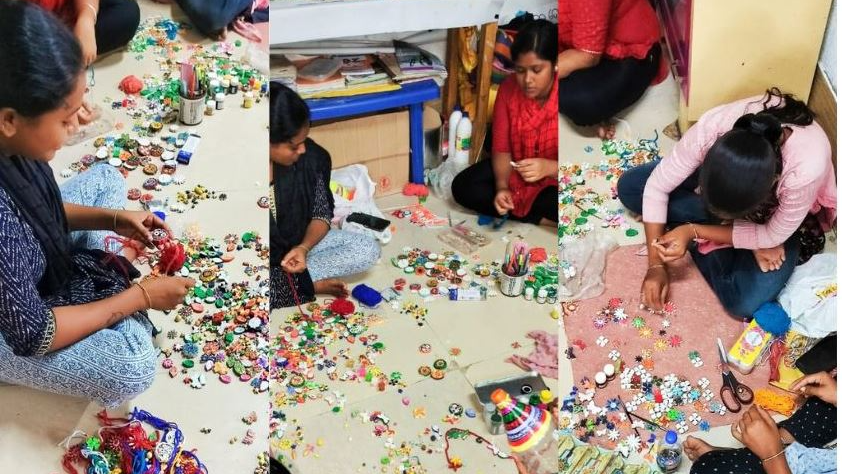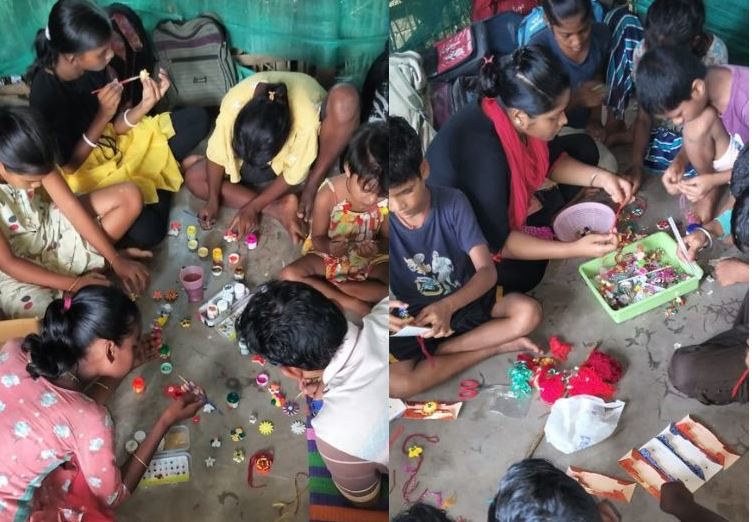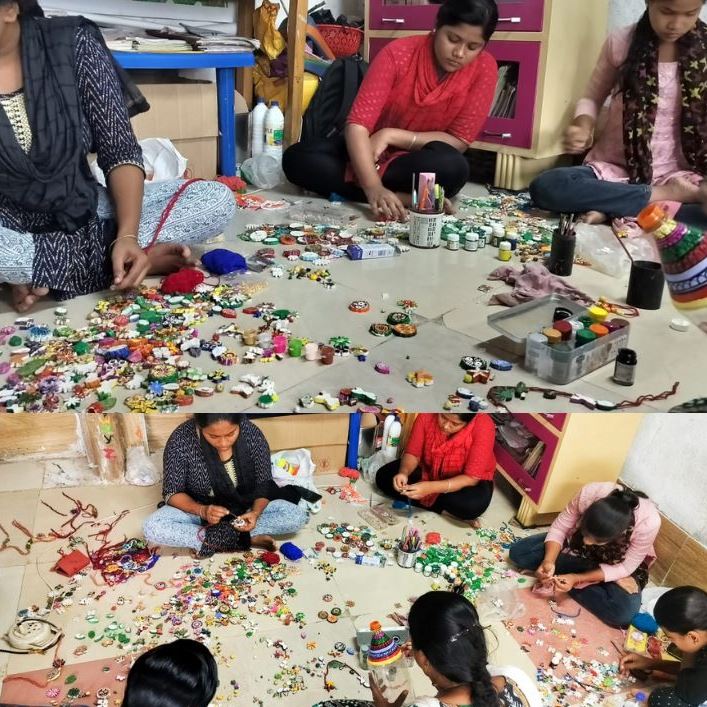

Bhubaneswar, August 7: This year, Raksha Bandhan is embracing a meaningful blend of tradition, sustainability, and environmental consciousness. In response to the growing use of plastic and glitter-laden rakhis that harm the environment, an inspiring initiative by Santosh Kumar Rout is paving the way for a greener celebration.
Rout, in collaboration with students of Anweshan Chatashali, has developed eco-friendly rakhis made from cow dung, cow urine, milk, curd, and ghee- the five sacred substances derived from cows, collectively known as Panchagavya. These rakhis, named ‘Panchagavya Rakhis’, are not only biodegradable but also capable of sprouting into plants after disposal.
“The idea was to protect not just our loved ones but also the environment,” said Santosh Kumar Rout, who has been associated with various Goshalas (cow shelters). “Through this, we aim to turn waste into something meaningful and spiritual.”

“The preparation of these rakhis begins 3 to 4 months in advance. The Panchagavya mixture is blended with Multani mitti (Fuller’s earth) and crafted into intricate designs such as flowers, leaves, butterflies, and even Lord Jagannath motifs. Embedded with seeds from different plants, the rakhis are capable of germinating if placed in soil, contributing positively to the ecosystem, explained Santosh.
Despite their eco-friendly nature, the Panchagavya Rakhis match conventional fancy rakhis in visual appeal and price. “They look just like market rakhis, but they leave no harmful residue behind,” Rout added.

Santosh has been developing and promoting these rakhis for the past four to five years. Initially started as an experimental project, the initiative is now gaining traction among those looking to celebrate the festival with deeper environmental and spiritual significance.